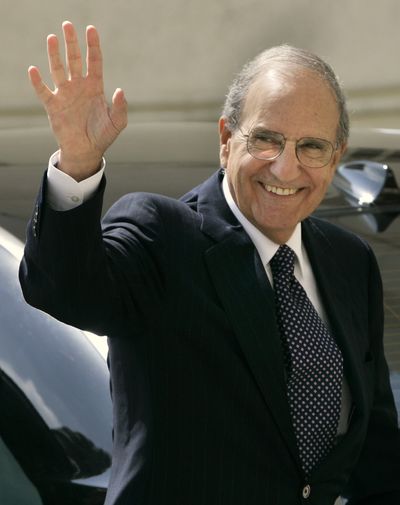Success eludes Mideast envoy
Mitchell returns to U.S. empty-handed

JERUSALEM – President Barack Obama’s Middle East envoy ended his most intensive round of shuttle diplomacy Friday without an agreement on one of the administration’s top foreign policy goals, restarting Israeli-Palestinian talks as a step toward a broader regional peace.
U.S. officials had hoped to coax enough concessions from Israel and the Palestinian Authority to help Obama announce a regional peace initiative next week. The timing is sensitive because a fresh round of talks on Palestinian statehood, the administration believes, could bolster the United States in a looming showdown with Iran over its nuclear ambitions.
But the American envoy, George J. Mitchell, left the region Friday after six days of talks failed to bridge gaps over several issues, notably Israel’s expansion of Jewish settlements on land claimed by the Palestinians for a future state.
U.S. officials said mediation efforts would continue even if the administration does not realize its hope of arranging a meeting next week among Obama, Israeli Prime Minister Benjamin Netanyahu and Palestinian Authority President Mahmoud Abbas.
A meeting of the three is now viewed as a long shot, even though they will converge on New York to address the U.N. General Assembly’s annual opening session.
Secretary of State Hillary Rodham Clinton said Friday the administration is “very determined” to push for an Israeli-Palestinian peace accord but cannot impose a solution.
Mitchell earlier this week described a sense of urgency for peace talks to resume “in the very near future.” He met four times during the week with Netanyahu and twice with Abbas, trying to bring them together. The latest round of direct talks in the decades-old conflict broke off last December, before Obama and Netanyahu took office.
Mitchell failed to break a deadlock over Israeli settlements that has caused months of open friction between the new Israeli and American administrations.
Israel has balked at U.S. demands that it halt settlement building in the West Bank and East Jerusalem. Most countries consider construction by Israel in those areas, which it captured in the 1967 Middle East War and has populated with nearly 500,000 Jews, to be a violation of international law. A U.S.-sponsored peace plan, the 2003 “road map,” required Israel to freeze settlement building.
Instead, Netanyahu offered to reduce settlement activity for several months, but he insisted that 2,400 housing units already under construction will be completed and that building will continue in East Jerusalem without limit.